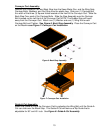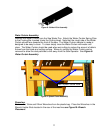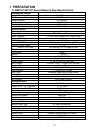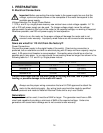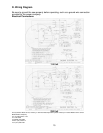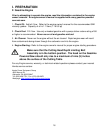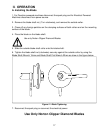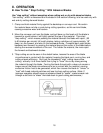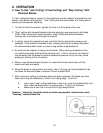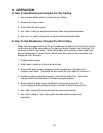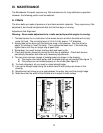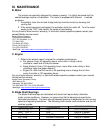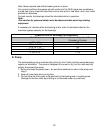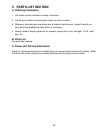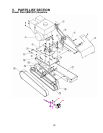
18
II. OPERATION
B. How To Use " Step Cutting " With Abrasive Blades
Use "step cutting" without exception when cutting wet or dry with abrasive blades.
"Jam cutting", which is discussed and illustrated in the section following, is to be used only with
wet and dry cutting diamond blades.
1. Clamp and hold material firmly against the backstop on conveyor cart. Be certain
the material does not slip or rock during cutting operation, as this can bind blade,
causing excessive wear and fracture.
2. Move the conveyor cart near the blade, and pull down on the head until the blade is
lowered to a point where it will lightly contact the top of the material. Then start
"step cutting" - which means passing the material beneath the blade with rapid , (50
to 60 strokes per minute) full length strokes, taking a shallow cut (approximately 1/8"
deep ) on the forward, and also on the backward stroke. Complete each rapid stroke
backward and forward, by passing the material beyond the center of the blade before
starting the reverse movement of the cart. The harder the material, the more rapid
the forward and backward strokes.
3. "Step cutting as can be seen in the sketch below, lessens the area of the blade
circumference in contact with the material, keeping the blade cool, running free, and
cutting at peak efficiency. Don't get the impression "step" cutting means slow
cutting - actually it is 6 times faster than trying to "force" the cut by strong-arming
the material through the blade. Forcing the blade through with a deep cut causes a
longer area of the blade circumference to be in contact with the material, causing
excessive friction heat to be generated, which then causes the blade to "smear" or
"load" with fused material particles and lose its sharp cutting surface. (Note: If
improper operation should cause an abrasive blade to "smear", make several cuts
through a soft brick to "dress” the blade back to good cutting performance.)



